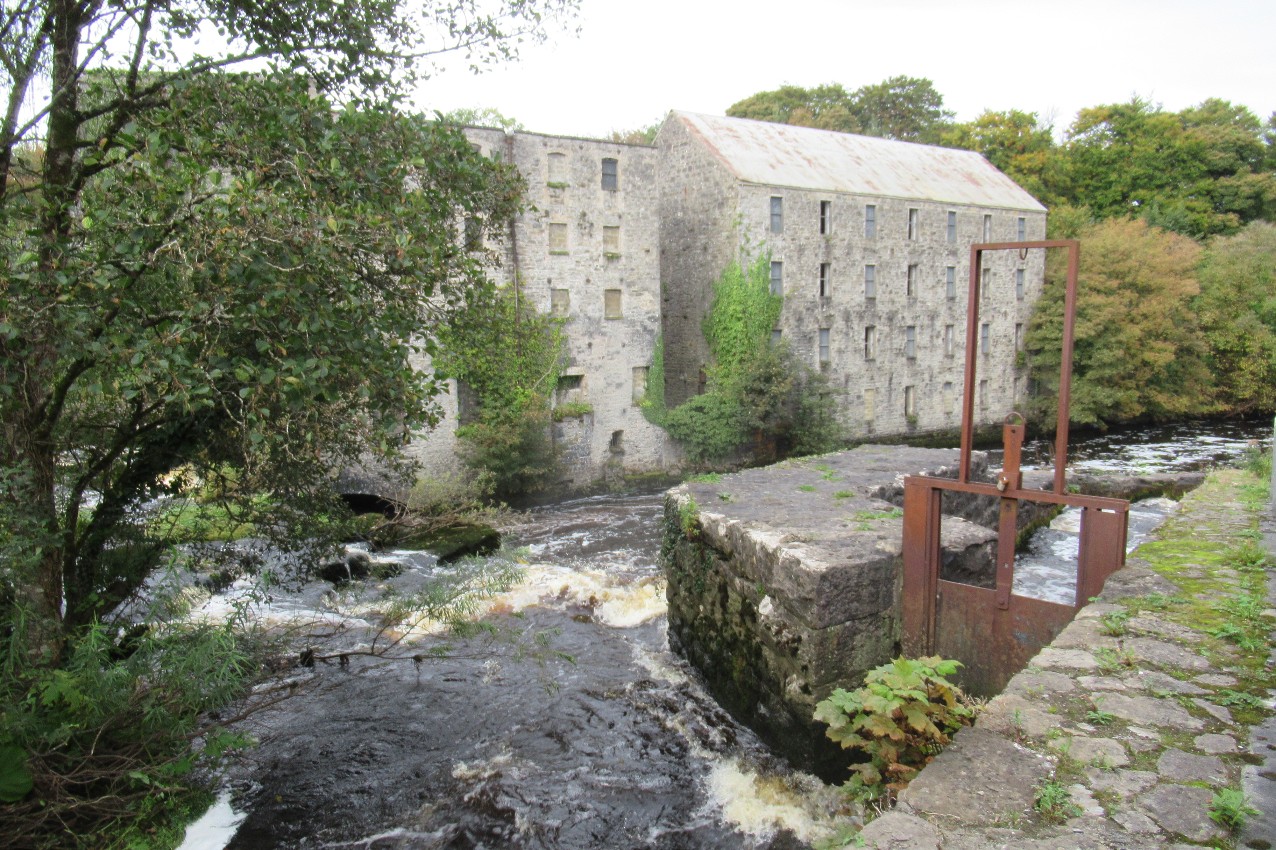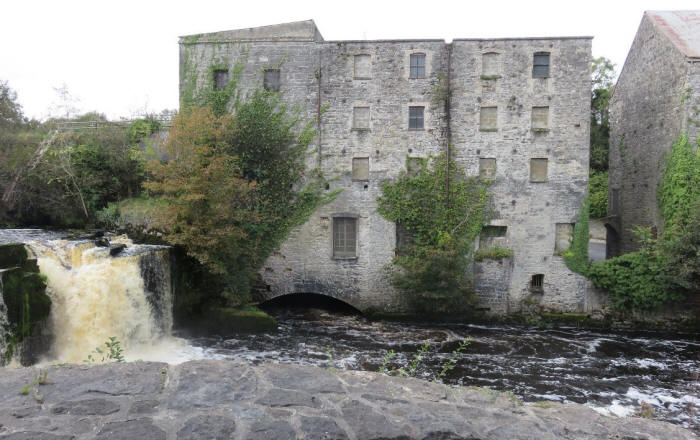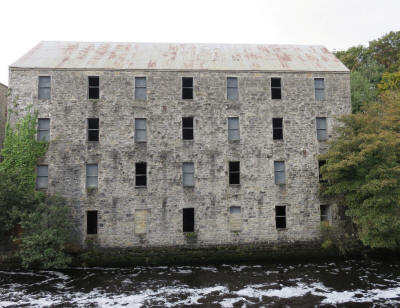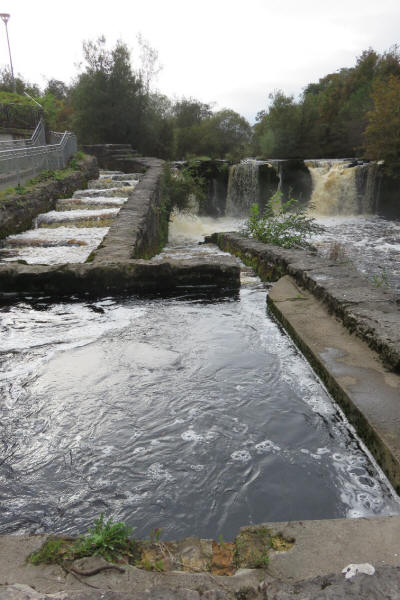|
   |
|
Page 4 |
Newsletter 136 Spring 2022 © Hampshire Mills Group |
|
Collooney Mills and Falls, County Sligo
Keith Andrews
Photos by Keith and Ruth Andrews
|
We snatched an end-of-season holiday last October in
Ireland expecting bad weather and wild coastal
scenery. Amazingly the weather was pretty good
although as you can see from our photos the rivers
were in full spate and the previous week had
reportedly been a wipeout.
Travelling between Mayo and Donegal, we were seduced
by a label ‘Mills and Falls’ on the map at Collooney
in County Sligo. So we took a diversion and
followed the signs to the town – not that easy as 5
miles away down the road was a place confusingly
called Coolaney! No signs to the mills anywhere, so
after a few wrong turns we finally made our way
through a new housing estate called Mill Falls (bit
obvious, that!), and came across the amazing sights
that you see in the pictures.
|
|

|
|
There was no information at the site that we could
see about the mills, and there seems to be a paucity
of information available in general. The Sligo Hub
website says that the mills, on the River Owenmore,
date from the 1830s and were owned by Alexander Sim.
Industrial Ireland, An archaeology (Colin Payne, The
Collins Press 2006) says that they used a Scotch
turbine, as developed by James Whitelaw of Glasgow,
with rotating arms enclosed in a cast iron box; it
was made by Randolph of Glasgow and powered 14 pairs
of stones.
Although they are thought to be corn mills, a
comment on the Sligo Hub website suggests that an
early map shows that the corn mills were actually on
the site of the Mill Falls housing estate, and that
the mills you can now see across the river are a
carbide mill and a fabric mill. Wikipedia says that
Charles O’Hara built a bleach mill there, which was
also used at times for producing carbide.
|
|

|
|
In the picture above you can see the height of the
falls, and the arch which is presumably the tail
race. The second mill on the site (below left) has
no visible tail race. The cascade (below right) is
presumably a fish pass on a grand scale. |
 |
 |
|
   |
|
|
